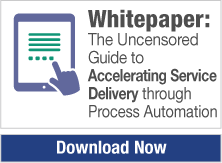 Last week, we discussed the history of and current trends in Document Management and Enterprise Content Management (ECM). A great deal of your ability to manage and leverage information assets more effectively hinges on integrating Mobile, Analytics, Cloud, and Collaborative (MACC) technologies. Subsequently, however, you may need to become a digital enterprise.
Last week, we discussed the history of and current trends in Document Management and Enterprise Content Management (ECM). A great deal of your ability to manage and leverage information assets more effectively hinges on integrating Mobile, Analytics, Cloud, and Collaborative (MACC) technologies. Subsequently, however, you may need to become a digital enterprise.
When the folks over at CMSWire attended Amplexor’s Future of Document Management event, they ended up gathering some of the industry’s key people together in the same room. Their perspectives are valuable to anyone looking to keep up with today’s IT advancements, namely in workflow:
1. More Companies Shall Evolve into Digital Enterprises
As the forum in which you conduct workflows expands, your materials become more and more digitized, and file volume exponentially increases, your organization’s evolution may no longer be a matter of simply “implementing” solutions, but rather incorporating them as an inextricable part of your infrastructure. This is what it means to become a digital enterprise.
This is not to say that all your relationships shall become mechanical and impersonal – rather, it’s that consistent engagement relies on workflow, and workflow relies on structure. Aligning your team in the digital sphere makes process automation far less burdensome and far more productive.
2. Productivity Might Plateau…Until the Next Recession
As we’ve mentioned before, the 80s-90s saw the rise of Enterprise Resource Planning (ERP) for data and back-end processes. This marked a big step forward in workflow and process automation, but in the era of the cloud, with increased digitization, these systems will rely more heavily on integration with ECM.
To maintain productivity, a more flexible, more easily adaptable system is needed. In other words, business agility is key. If you don’t have an agile platform, you won’t be well equipped for crisis, and the experts forecast that it might take a recession to push most companies to progress. Make sure you don’t get left behind.
3. The Definition of a Document Has Never Been More Important
As we know, increasing document volume means more time spent searching for the right information (36% of the average worker’s day, to be exact). And only 56% of the time is the information needed to complete a job found. Documents are no longer simply defined by the .doc extension – documents comprise information in a growing variety of forms, which necessitates more refined, nuanced search capabilities.
How information is defined is also reliant on the context in which it is conceived/used, and that affects how it is treated in legal matters. Information governance will start requiring compliance and authorization workflows to be customized based on circumstance. In other words, the process legally required of a certain situation may be subject to change in a different environment. A more dynamic platform is required for this.
4. “Document Management is the Crucial Foundation for a Digital Enterprise to Succeed in the Future”
Direct quote. This may sound obvious enough (especially in a room full of DMS aficionados). However, the key to this concept is changing the perspective on DMS from viewing it as a solution to viewing it as a network tool. Budgets are steadily being redirected from IT to business. This is not because IT isn’t important – it just means that the technology you employ will become less solution-based and more network-based, because information travels faster in a network.
This transition is inevitable as more intelligence and automation is required for businesses to run, and their workflow technology requires improved usability, smarter search, and more personalization/contextualization. There are DMS/ECM platforms with these capabilities—it’s up to you to decide which platform will provide a temporary “solution” and which will carry your digital enterprise into the future with confidence.

